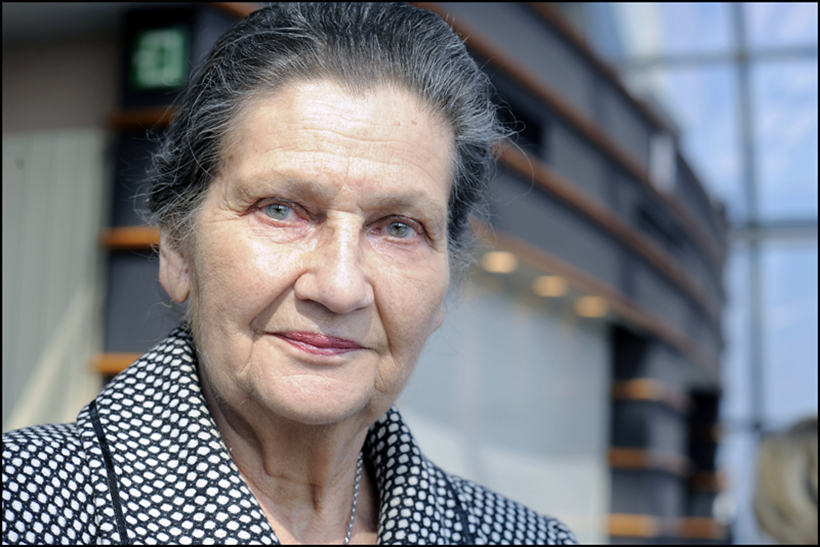In the summer of 1927, where there is the bluest sea in the world, Simone Veil was born. Her love for her family and for justice, and that air of freedom she breathed as a child in the Mediterranean [region] gave her the strength to survive the Holocaust, to become a lawyer, a political scientist, a magistrate, a Minister of Health in the government of Giscard d’Estaing, President of the European Parliament, one of the 40 immortals of the French Academy and the “first lady of Europe”.
She lived the horror in the concentration camps of Drancy and Auschwitz, and during the death march to Bergen-Belsen; she saw her mother die of sadness, hunger and disease on account of Nazism. Simone, defender of human rights and women’s dignity, fought discrimination, worked for AIDS patients, visited Algerian prisons and advocated for prisoners who suffered undignified captivity, torture and humiliation. She wrapped the social pain of her time – which is still ours – in a banner of intellectual and political struggle for re-humanization and justice.
She received the highest European decorations and the worst insults from France’s radicals. She defended the right of women to decide on contraception and voluntary interruption of pregnancy; she introduced and pushed through the law for the decriminalization of abortion, and for this she was branded a criminal by conservative legislators.
She returned to Auschwitz when the 60th anniversary of the liberation was commemorated and gave a speech that would be enough for the 8 billion inhabitants of this planet to dedicate their entire lives to work for the peace of societies and nations.
Simone Veil was the light not at the end but inside the tunnel, strength for the defeated, vindication, resistance and courage; a voice that was not extinguished neither by the Gestapo, nor by the men of law, nor by the pain of the disappearance of her father and brother in the convoy 73 to the Baltic countries.
A great woman who died in Paris in June 2017, 13 days before her 90th birthday. She was buried in the Montparnasse cemetery and in 2018 she was transferred – along with her husband, Antoine, and by order of President Emmanuel Macron – to the Panthéon where the remains of “great humans” rest. 81 illustrious French rest in peace in the Panthéon. Simone Veil and Marie Curie are two of the six women who have received this honor. “With Simone Veil, enter generations of women who built France; today, through her, justice is done to them,” Macron said.
These days, [the film] Simone, le voyage du siècle (Simone: Woman of the Century), will be released in Colombia. It is directed by Olivier Dahan and stars Elsa Zylberstein, an actress of Jewish origin, who spent years studying the character, her way of walking, looking and feeling. The film is impeccable. Intense and sad, strong and moving, it mobilizes, makes you think and suffer, and also incites hope and rebellion for the rights of the vulnerable; it is an urgent cry against war and discrimination; it transmits the defiance necessary to continue working for non-violence while never betraying that critical heart demanded by the 21st century.
They say that “Simone Veil was for 25 years the most loved woman in France”. And I believe that she will be one of the most loved and admired by thousands of women from all over the world, by the political prisoners, by the sick and the victims of all times, by the dead in the crematorium ovens, in the journeys to nowhere and in the sad and stupid wars that we keep on perpetuating.






